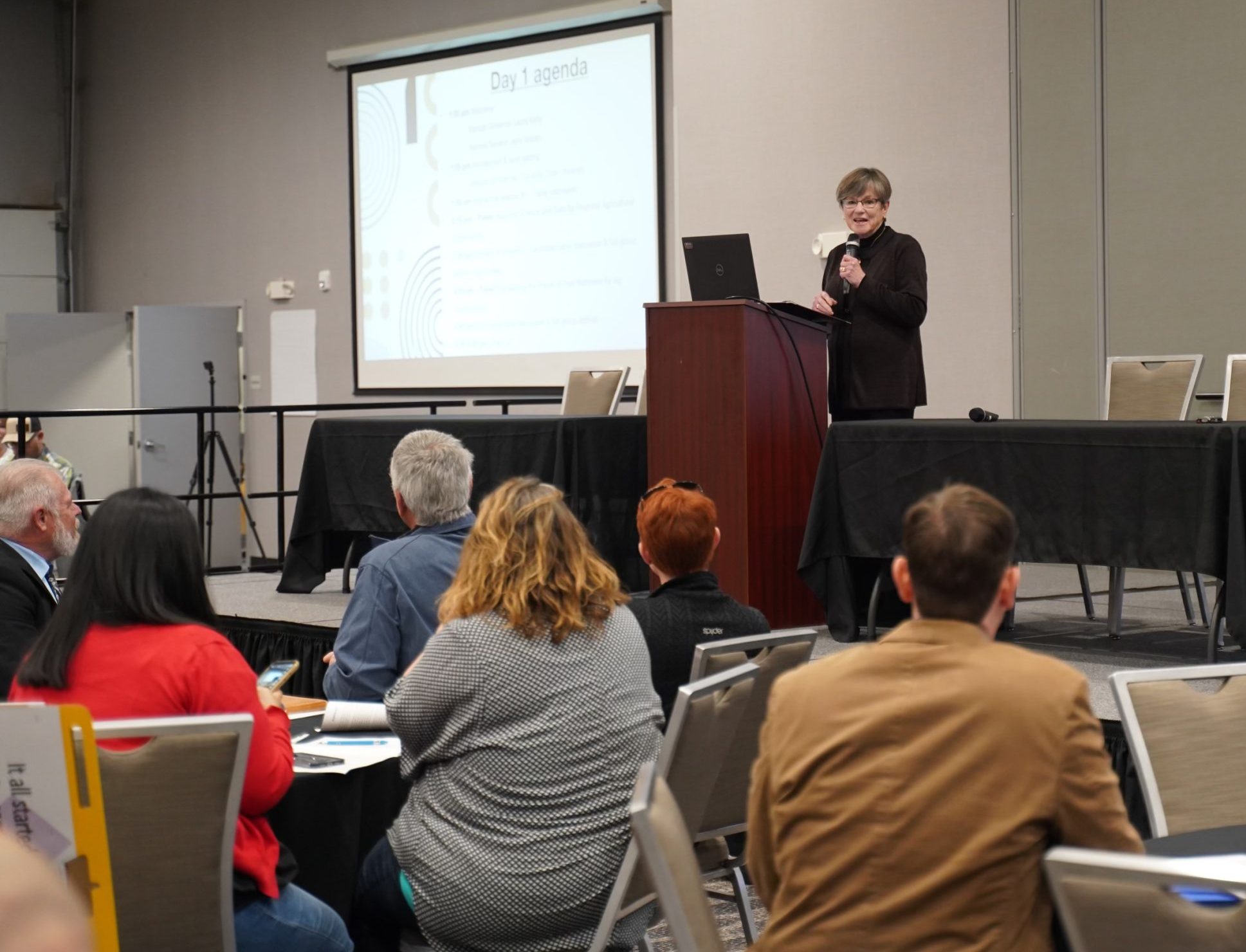Governor Kelly tells Ogallala Aquifer Summit that Kansas’ future depends on water

Kansas Gov. Laura Kelly spoke March 18 at the Ogallala Aquifer Summit in Liberal, Kansas, and told attendees she’s committed to protecting the state’s most precious natural resource.
“Preserving the quality and quantity of water in Kansas remains a top priority for me in my second term because it is an existential issue for our state,” Kelly said. “Having a clean, stable water supply is critical to maintaining our way of life in all communities across Kansas, rural and urban alike. It’s critical to maintaining Kansas as we know it and love it.”
Kelly recognized how critical the Ogallala Aquifer is to Kansas and the state’s agriculture industry, as well as all industries that have maintained historic economic growth the last several years. She believes if rural Kansas can succeed in preserving its water quality and availability, the state will succeed too.
“Kansas has already made significant progress in addressing our water crisis,” she said.
Vijay Ramasamy was recently hired as senior adviser on water, and Kelly created a water sub cabinet to take a collaborative, all-hands-on-deck approach to the issue. In the last legislative session, two landmark bills were passed with the help of House Water Committee Chair Jim Minnix and Ranking Member Lindsey Vaughn.
“One established a specific timeline for communities to develop strategies around maintaining water quality and quantity,” Kelly said. “The second allocated an unprecedented investment in the State Water Plan—to the tune of $35 million annually for five years.”
Kelly is encouraged by the progress so far, but there remains much more work to do.
“It’s crucial that we build on our progress—which is why a summit of this scope is so important,” she said. “I’m grateful to everyone who’s here today because it is these types of forums that lead to lasting, meaningful reforms.”
Water is an issue that affects every Kansan.
“We all have a responsibility to come together to find ways to address it,” Kelly said. “It’s not going to be easy, but the good news is, we are in a better position than we have ever been to get this done.”
Kelly said the Kansas Water Authority voting to reject the planned depletion of the Ogallala Aquifer set a new path toward water conservation, adding to momentum. Additionally, she said, funding is in place to assist in preserving water availability.
“To ensure that we can stay on track, earlier this year, I directed the Kansas Water Authority to develop a long-term strategic funding plan for water to ensure that our communities have the resources they need to implement best practices for water conservation and quality on into the future,” Kelly said.
Science is guiding those plans, she said.
“Kansas has some of the best water data in the world, and the new Kansas Water Institute at Kansas State University will leverage resources and expertise from the university and beyond to develop innovative solutions to water challenges,” she said. “And we know what works.”
According to Kelly, since 2019 there has been new technology developed that centers on irrigation, water monitoring and other key farm processes across the state.
“We’ve seen successes across the region that we can learn from, replicate and scale,” she said.
Initiatives like the Local Enhanced Management Area in Sheridan County and others have shown there doesn’t have to be a choice between conserving water and growing an economy, Kelly said.
“On the contrary, one is essential to the other,” she said. “Now is the time to secure the future of water in western Kansas and throughout our entire state.”
Kelly urged collaboration and courage, moving forward.
“The need to maintain a reliable, safe water supply for Kansans in every corner of the state for generations to come is not a partisan issue,” she said. “We are all in this together.”
There is tremendous opportunity ahead to be a model for the rest of the country when it comes to water conservation, according to Kelly.
“We can show that collective, coordinated action is good for our pocketbooks and our communities in both the short term and the long term,” she said.
Kelly said as governor, she will “do everything in my power to create a viable path
forward on this issue.”
“By the end of my time in office, I want to have strong, regional plans in place that will ensure the stability of the Ogallala Aquifer for years to come,” she said. “The future of Kansas depends on it.”
Kylene Scott can be reached at 620-227-1804 or [email protected].



